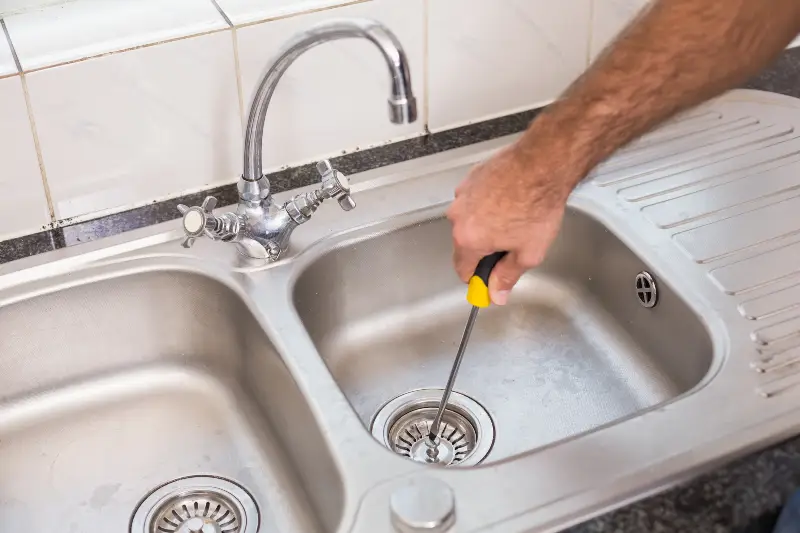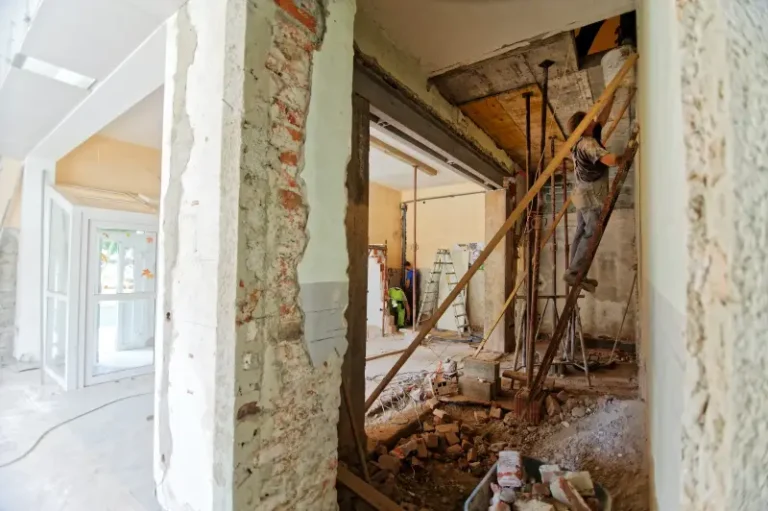How to Unclog Drain Naturally With Baking Soda and Vinegar

A clogged drain is a common household problem that can cause significant inconvenience. It is usually caused by fat, oil, and grease. These substances can lead to blockages in our drainage systems when they solidify and accumulate over time.
The combination of baking soda and vinegar is a good natural DIY solution to unclog a soft clogged drain in small pipes, such as kitchen sink drains, bathroom sink drains, and bathtub and shower drains.
Although chemical drain cleaners are more powerful and faster to unclog the drain, most of them contain harsh chemicals like sodium hydroxide or sulfuric acid.
Over time, these chemicals can not only damage your home drain pipes as they’re corrosive, but also burn your skin and eyes after long-term exposure because of the irritation they’ll bring.
Why Baking Soda and Vinegar Can Unclog Drains
Baking soda (NaHCO₃), or sodium bicarbonate, is an alkaline substance. Vinegar is made of water and acetic acid (CH₃COOH), which is an acid. So when you mix them together, an acid-base reaction occurs that produces carbon dioxide, water, and sodium acetate.
NaHCO3 (baking soda) + CH3COOH (acetic acid) -> CO2 (carbon dioxide) + H2O (water) + CH3COONa (sodium acetate)
It is the released carbon dioxide gas that unclogging drains. When you pour the baking soda into the drain, followed by vinegar, the reaction produces a lot of bubbles of carbon dioxide gas, and you’ll hear fizzing and bubbling action.
These bubbles can help to dislodge clogs by breaking apart the clog to make it loosen in the drain.
Meanwhile, the rapidly expanding gas bubbles can create the pressure to push the blockage but loosen material upward and out of the drain easily, especially if it’s composed of soft materials like oil, fat or grease, or food particles in kitchen sink drains; or hair or soap scum in bathroom sink drains, and bathtub and shower drains.
Further, the added hot water and water produced in the reaction can also help to soften and flush the dislodged material down the drain. Therefore, the drain is unclogged and clean.
How to Unclog Drains With Baking Soda and Vinegar
Usually, you need to pour hot water down the drain before pouring baking soda and vinegar because hot water can melt the fat, oil, and grease clog OR hair, soap scum, and toothpaste clog, which can make the cleaning process faster and easier.
Here are 6 steps to unclog your drain with baking soda and vinegar:
Step 1: Pull Out the Stopper and Clean It
Start by pulling out the stopper, as it may contain food particles (in the kitchen sink), or hair and soap scum (in the bathroom/bathtub sink) on it, and removing it can help you to access the drain.
Step 2: Pour Hot Water
Then pouring 1 gallon of hot water down the drain to melt some greasy clogs and soften some small blockages around the lining of the pipes.
Step 3: Pour Baking Soda and Vinegar
Next, pour 2 cups of baking soda and then 4 cups of vinegar. You’ll hear “bobobo…” voice in the drain. The foam might also bubble up from the drain and could possibly fill your sink.
In the reaction of baking soda and vinegar, the produced carbon dioxide gas and the pressure it creates can help break up blockages and loosen the drain clog.
Step 4: Cover With the Drain Plug and Wait 10 Minutes
Cover with the drain plug immediately (so the pressure can build up) and wait about 10 minutes (let baking soda and vinegar react completely).
Step 5: Add More Hot Water
Pour 2 gallon of hot water down the drain to wash away the loosened debris from the pipes.
Step 6: Repeat These Steps
If the drain doesn’t unclog, try repeating these five steps once or twice. However, if the blockage is serious, the baking soda and vinegar method might not work.
Benefits Of Using Baking Soda and Vinegar As A Natural Drain Cleaner
Using baking soda and vinegar to clean out drain clogs has several benefits:
- Safe for Pipes: Unlike commercial cleaners, baking soda and vinegar method won’t damage your pipes. Some store-bought cleaners can be too harsh and corrode the material of your pipes, and your drain may break down over time.
- No Harmful Chemicals: Baking soda and vinegar are natural substances. They don’t contain harmful chemicals that could burn your skin or eyes.
- Easy to Use: It’s simple to pour baking soda and vinegar down the drain. You don’t need any special equipment or training.
- Environmentally Friendly: These natural cleaners are better for the environment. They don’t add harmful chemicals to water systems like commercial cleaners can.
- Cost-Effective: Baking soda and vinegar are common household items and are usually cheaper than commercial drain cleaners.
Does Baking Soda and Vinegar Can Be Harmful to Your Drain?
Baking soda and vinegar are generally safe for most types of pipes including PVC (plastic) pipes, copper pipes, and stainless steel. The reaction between baking soda and vinegar is mild and unlikely to cause significant damage to your pipes, even if they are old.
However, if your pipes are in poor condition, any changes to the internal environment, including changes in pH or physical disturbances, could potentially cause problems. If you’re concerned about the condition of your pipes, you’d better consult a professional plumber.
Why Should You Avoid Mixing Commercial Drain Cleaners With Baking Soda And Vinegar?
There are two conditions you should avoid as commercial drain cleaners often contain powerful chemicals designed to dissolve clogs, which will react with baking soda and vinegar.
1. Use Baking Soda And Vinegar In Your Drain If You’Ve Recently Used A Commercial Drain Cleaner
If you’ve used a commercial drain cleaner and then follow it up with baking soda and vinegar, the baking soda (a base) and vinegar (an acid) can react with the chemicals in the drain cleaner. This can potentially cause harmful fumes or a violent reaction, which could damage your pipes or pose a risk to your health.
2. Use A Commercial Drain Cleaner Immediately After Trying Baking Soda And Vinegar
Similarly, if you’ve tried using baking soda and vinegar and it hasn’t worked, you should avoid using a commercial drain cleaner immediately afterward for the same reasons. The residual baking soda and vinegar in the drain could react with the chemicals in the drain cleaner.
Conclusion
Baking soda, vinegar, and hot water can help unclog minor drain clogs, but this method is not effective for severe clogs in your plumbing system, caused by solid objects or heavy build-up of materials that cannot break down.
So if you find baking soda and vinegar don’t clear the clog, it’s better to try a mechanical method like a plunger or a drain snake, or to call a professional plumber.
If you do want to use a commercial drain cleaner, make sure to thoroughly rinse the drain with plenty of water first to remove any residual baking soda and vinegar.


